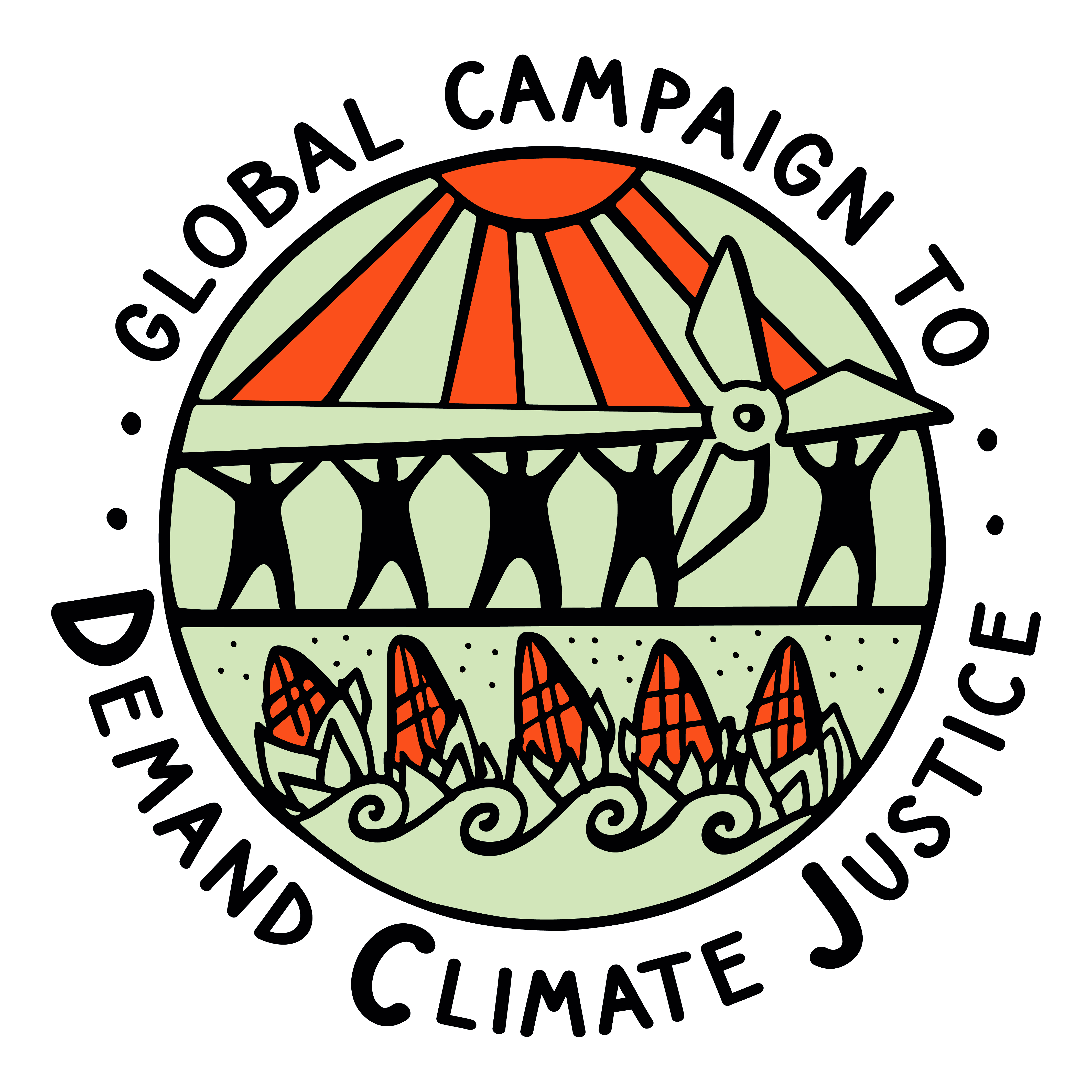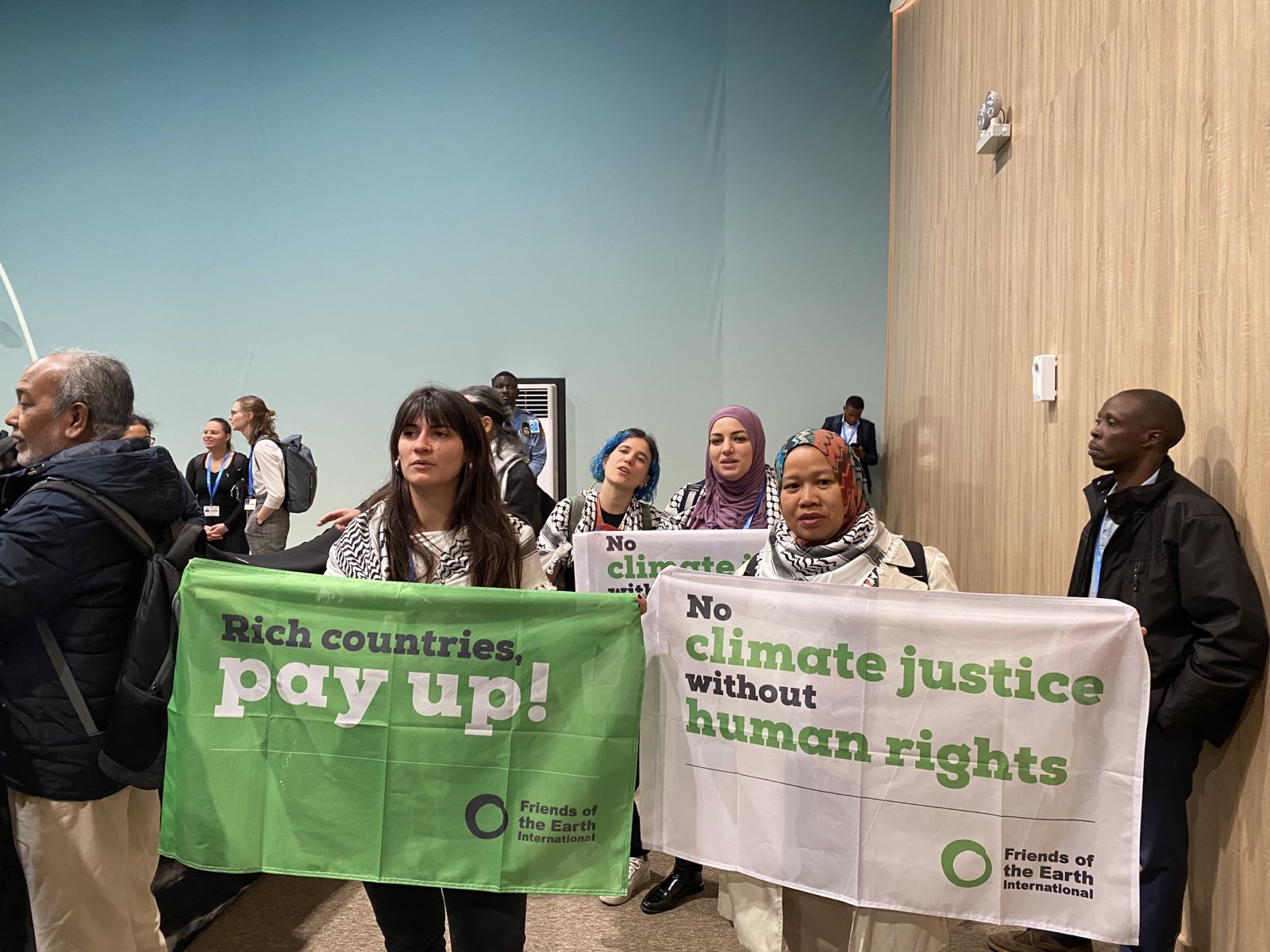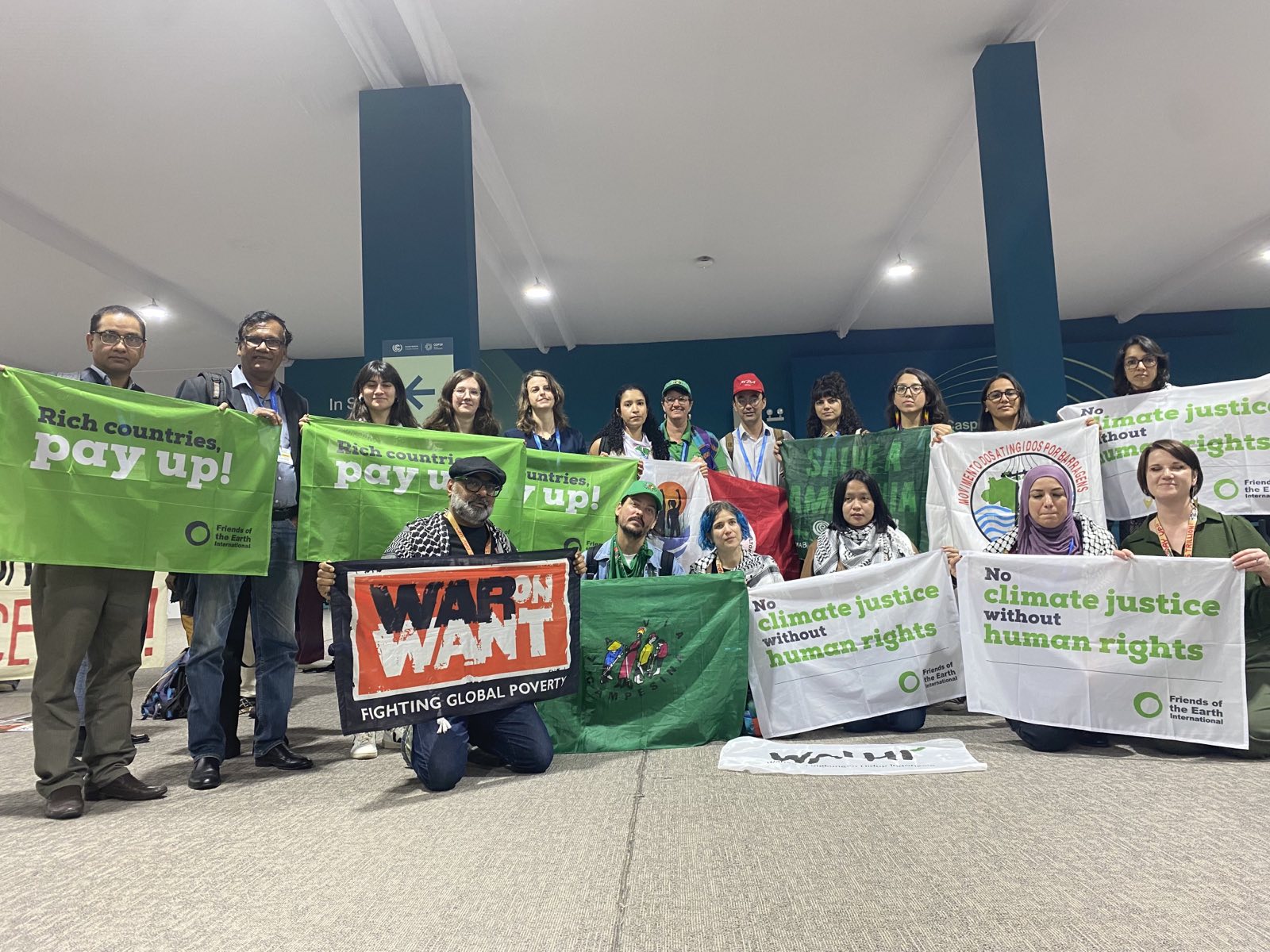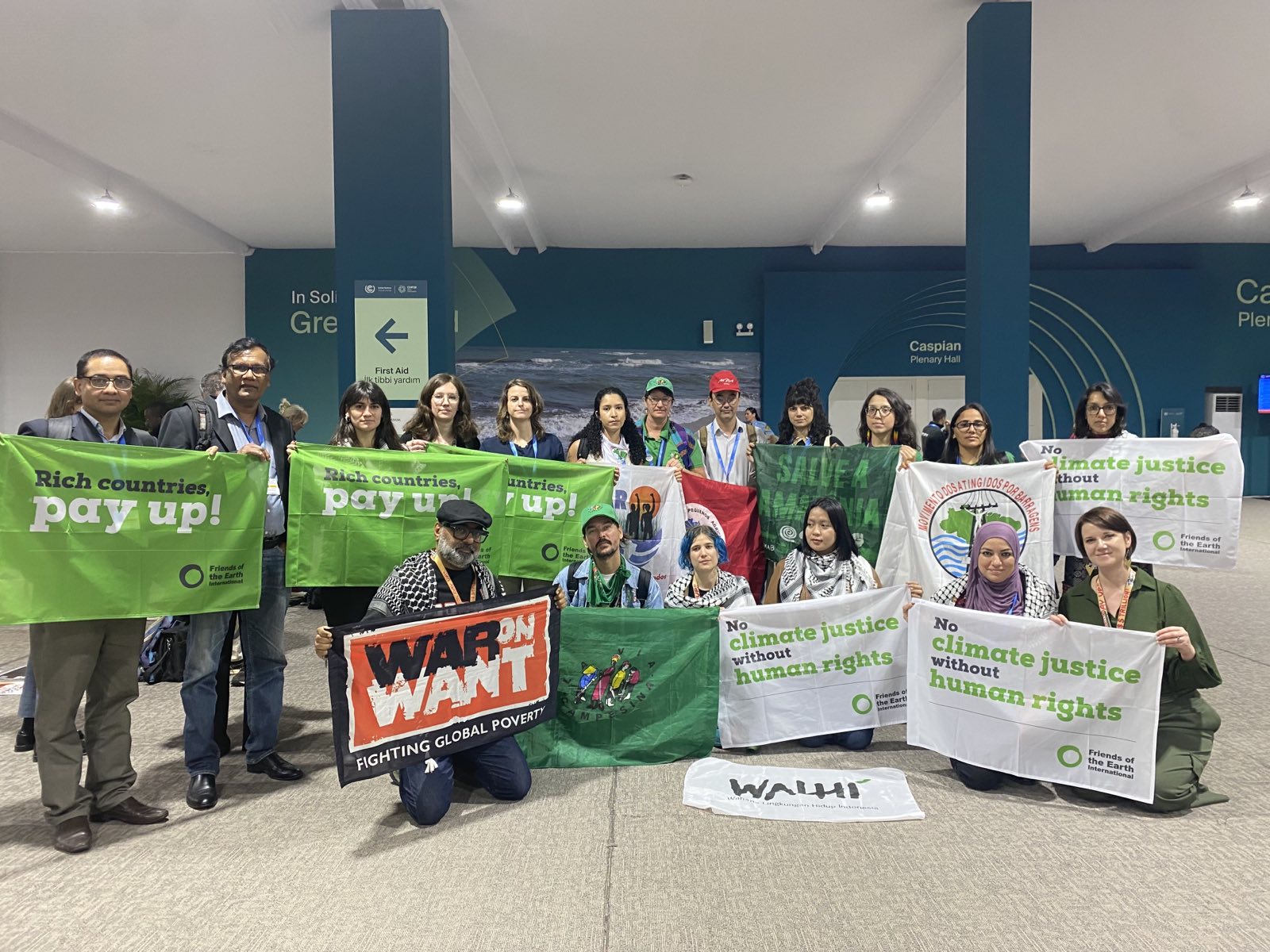Quote sheet for SB62 Outcome.
Global Campaign to Demand Climate Justice (DCJ)
KEY RESOURCES 1. Op-ed on Germany’s role in blocking climate action (English, German) 2. DCJ Finance Brief authored by Victor Menotti 3. New Research on Carbon Offsets by Corporate Accountability 4. Four countries responsible for nearly 70% of projected CO2 pollution from new oil and gas – Oil Change international 5. Civil Society Letter to UNFCCC Secretariat on censorship of Palestine Solidarity. 7. List of demands from Palestinian COP30 Coalition 7. World’s largest expansion of fossil fuels on the Gulf Coast of the USA, more than all other countries combined. 8. Establishing a UNFCCC Accountability Framework to protect against undue influence of polluting interests
CONTACT For media enquiries: Esthappen S, Communications Coordinator, Global Campaign to Demand Climate Justice (Whatsapp: +91 9820918910, Email: [email protected])
QUOTE SHEET Covering climate finance, adaptation, l&d, JT and other UNFCCC linked agendas with links to genocide in Palestine, wars waged by league of colonisers on global south and inequities in the climate regime and finance architecture.
Format: Name, organisation: Quote.
- Meena Raman, Third World Network:
The biggest disagreement at Bonn was over the failure of the Global North to address or even listen to the concerns of the Global South. Right at the start, developing countries wanted to discuss how to treat provision of finance from developed countries (Art 9.1 of the Paris Agreement) with the G77 and China wanting a discussion on the agenda but developing countries blocked even a conversation. Whenever developing countries get into the provision of means of implementation (MOI) and finance, developed countries always push back by involving the private sector and muddy the mandate by introducing mobilization. On Global Goals on Adaptation, a key agenda for the Global South, which is an effort to see whether the peoples of the world and countries will be able to adapt through developing indicators starting 2023 eg. On water, health, food, ecosystems… developing countries want to have indicators on means of implementation. But developed countries have opposed this, they want indicators on eg. Official Development Assistance (ODA) as part of adaptation that is not new and additional finance. Developed countries have also refused to talk about finance for formulation and implementation of National Adaptation Plans (NAPs). The Global South wants finance for adaptation, but the Global North takes the Do It Yourself (DIY) approach whenever it comes to implementing climate action in developing countries and their mandatory obligation to provide finance to the South. On Carbon Border Adjustment Measures (CBAM) or unilateral measures which the EU is pushing and Canada, UK are also thinking about introducing, they don’t want to make space for any meaningful discussion which allows for the ventilation of Global South concerns and understanding what impacts these policies have on climate action in the Global South. On the Technology Implementation Program (TIP), they don’t want to talk about intellectual property rights as a barrier to technology transfer and affordable access. Finally, on the UAE Dialogue (Paragraph 97 of the GST Outcome), the big fight has been about the scope. Para 97 falls under the MOI section so developing countries understand it as part of finance discussion, but the Global North is again not aligned. I say it takes two-to-tango but the Global North has left the Global South alone on the dance floor of negotiations at Bonn. - Lidy Nacpil, Asian People’s Movement for Debt and Development:
Even as global temperatures reach record-breaking heights, Global North governments continue to be the biggest blockers of climate justice. Following the outrageous outcome of COP29, the Global North continued to dodge their climate finance obligations at SB62–most egregiously blocking a discussion of Article 9.1–while ramping up military spending to 5% of their GDPs. By refusing to honor their climate commitments and preventing progress in these negotiations, the Global North is jeopardizing our world, risking our lives, and killing the Paris Agreement. In spite of these obstructions, which do not bode well for Belém, we look forward to waging our fights at COP30. This world is ours, and we must fight to reclaim it from the polluters, profiteers, and perpetrators of injustice who have brought it to the brink of chaos. - Rachitaa Gupta, Global Campaign to Demand Climate Justice:
We are the communities on the frontlines of a crisis we did not create—a crisis driven by greed, war, and colonialism. At these climate talks all we saw was the world’s richest governments pour trillions into war machines, fund genocide in Palestine, and protect corporate profit over human life while failing to deliver on their historical responsibility through real public finance. Choosing instead to privatize our lands, forests and water through carbon markets and offsets while sabotaging any meaningful just transition. We condemn the UNFCCC Secretariat’s censorship of civil society for standing in solidarity with Palestine—and we will not be silenced. Climate justice cannot exist in a world where bombs continue to rain on Gaza and corporate power continues to write climate policy. Fight for climate justice is the fight for liberation, everywhere. And at COP30 we will show it is people’s power and not the rich that will shape the future. - Alison Doig, Recourse:
At the Bonn talks, the private sector has been making a bid to capture the little public climate finance available. We heard a lot about capital markets, green bonds, public-private blending, and multilateral development banks’ role in de-risking, but not nearly enough about the needs of climate-vulnerable communities, women, youth and nature. Ahead of COP30 in Belem, the Brazilian Presidency should re-assert that climate finance must be for grants supporting a just transition to a climate-safe world, not for lining bankers’ pockets.” - Amiera Sawas, Head of Research & Policy, Fossil Fuel Non-Proliferation Treaty Initiative:
As the Northern hemisphere suffers deadly heatwaves, UN climate talks remain frozen in an out-of-touch process. War and military spending escalated outside, while inside there was no discussion—and no finance. Civil society fought to bring negotiations into the real world, but geopolitics and the fossil fuel lobby kept derailing progress. Even successes, like the draft text for the ‘Just Transition Work Programme’ informed by workers and Indigenous Peoples, were nearly paralyzed by fossil fuel interests at the end. We are already at risk of breaching the 1.5 temperature limit, there’s no time for paralysis. There’s a real risk that the UN climate talks fail to address the crisis’s biggest drivers: coal, oil, and gas. We cannot afford any more failure, we must urgently do better. And we will – whether inside or outside the UN. Brazil is talking big but its actions speak louder than words and its recent approval of new oil extraction in the Amazon is the worst possible signal. - Rachel Rose Jackson, Director of Climate Research & Policy, Corporate Accountability:
These talks have become completely divorced from the reality of the climate crisis. While trillions of dollars are being poured into nuclear war by the very same governments that are responsible for climate change—and while the very same corporations that knowingly fueled the climate crisis are getting even richer off of these wars—not a penny is offered to the countries and communities already facing life or death from the climate crisis. While countries around the world cave to authoritarianism and the far right, these talks pander to this agenda, rather than resist it. Bonn should have filled in the potholes on the rocky road to Belém. Instead, the road to Belém is now paved with landmines, and the work ahead of us is harder than it has ever been. The signposts on the road to COP30 are clearly marked. End the ability of Big Polluters to write the rules of climate action. Global North governments must do their fair share of climate action and pay their climate debt. End fossil fuels justly and urgently. Reject dangerous distractions and fast-track to Real Zero. Center those on the frontlines—Indigenous Peoples, communities of color, those in the Global South—not Big Polluters. Will world governments course correct immediately, or will they push us off a cliff. - Romain Ioualalen, Global Policy lead at Oil Change International:
Bonn saw the Global North further retreat from its responsibilities to provide public finance for climate action, instead promoting fabricated narratives on private finance filling the gap – despite evidence the market-led approach is not delivering. On top of blocking finance, rich countries failed their homework on fossil fuels with four Global North countries responsible for 70% of projected oil and gas expansion, which made calls from developed parties to center the fossil fuel phaseout in the negotiations continue to ring hollow and hypocritical. However, an outcome on just transition in Belém is within reach and could provide momentum for centering justice in the transition. - Victor Menotti, Global Campaign to Demand Climate Justice:
Bonn’s SB62 took the world backwards from even the Baku Debacle, putting COP30 host Brazil in a sticky situation for sweltering Belem…or Rio? Although Trump has pulled out of the Paris Agreement once again, his pressuring NATO members to spend 5% of GDP on military expansion has sucked all the oxygen out of the otherwise balmy air in Bonn. Developed countries operate a three-prong offensive to counter developing country demands for climate justice: 1) to stop any significant discussion on providing finance per legal commitments under Article 9.1 of the Paris Agreement, as Berlin’s budget due next month means their record borrowing for mainly US defense contractors leaves little to nothing for cutting emissions and adapting to climate impacts in the Global South; 2) to attack Global South countries for their lack of “ambition” in reducing emissions — and pressuring them to do more — despite failing to offer sufficient finance and zero flexibility on WTO patent rules that prevent technology transfer; 3) to keep financing their own fossil fuels frenzy, as Europe and Asia increase investment in LNG export facilities on the US Gulf South, one of four developed countries (along with Canada, Norway and Australia) that make up 70% of planned fossil fuel expansion by 2030.Geopolitics may make the most headlines today, but the Global North’s conduct in international climate talks only expedites the pre-eminence of changing geophysics. - Coraina de la Plaza, Coordinator, Hands Off Mother Earth Alliance:
We will continue to resist geoengineering inside and outside the UN space, and reminding governments that our planet is not a laboratory but a shared HOME that we all must protect through proven and just sustainable solutions and not by experimenting with risky and unproven geoengineering schemes. - Seranya Solanki, Alliance of Non Governmental Radical Youth:
Despite the opposition from developed countries and attempts to kill the just transition work programme, we were able to achieve a text in SB62 that would create the space and momentum for the UNFCCC to deliver concrete actions on Just Transition in Belem cop30 for affected workers and communities – that recognises that people-centric, bottom-up, whole-of-society approaches are required to achieve just transitions. Unilateral trade measures have a space to be discussed here on how trade measures in general affect or restrict just transition at the national level especially for countries in the global south – already burdened with high debt burdens and the impacts of climate change. We cannot sacrifice ambition in the mechanism in order to secure any old unjust deal on just transition where rights, justice and equity are ignored. It has taken decades to have a just transition on the international table in the climate negotiations. We are concerned at how parties, despite providing rhetoric on the need for inclusivity and participation of rights holders, have not concretised these principles through operative decisions, which is why we are pushing for a COP30 decision text on calling on countries to establish national institutions for peoples’ participation – where we can guarantee that rights holders are involved in the planning and implementation of just transition measures and policies at the national and local levels. We remain vigilant against the antics of parties who either want to delete all references to fossil fuels or weaken any language on means of implementation. There can be no global Just Transition without an equitable and just phaseout of fossil fuels with developed countries taking immediate action and providing the necessary means of implementation to developing countries with the least historical responsibility for climate change but are most vulnerable to its impacts. - David Williams, Head of International Climate Justice Program, Rosa-Luxemburg-Stiftung:
After years of refusing to pay up for climate finance, the EU has this week shown at the NATO conference in The Hague that the money in fact had been available all along. With the frequency and intensity of droughts, heatwaves, floods, and other climate change impacts increasing across the world, those who have caused the crisis are persisting in their abdication of responsibility. Climate finance is not charity, it is an obligation enshrined in international law under the Paris Agreement. With the US exiting various international treaties, the EU cannot hide any more, having to position itself clearly on where it stands in terms of upholding international law. This is an opportunity to rebuild trust and solidarity with the Global South in times of geopolitical turmoil. Whether the EU will seize this opportunity is another question. The early warning signs are deeply concerning.






